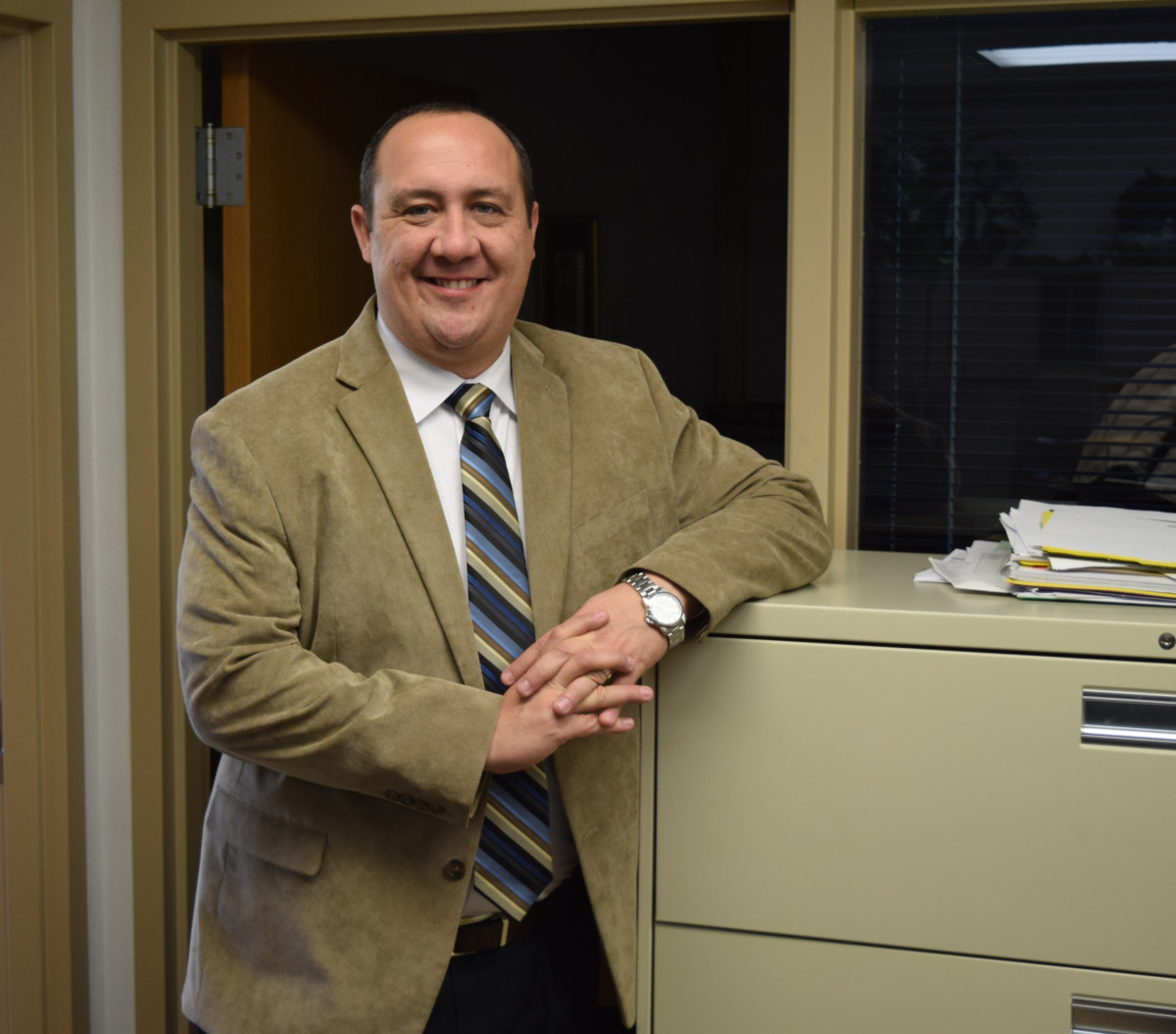In the nearly six months that the Diocese of Belleville’s new superintendent of schools/director of education Jonathan “Skip” Birdsong has been on the job, he has visited 26 Catholic schools.
The new director took charge August 1, just as the new school year was beginning. Almost immediately he began accompanying Bishop Edward K. Braxton on the bishop’s annual school visits. Normally the bishop will visit six or so schools in the fall. This year that number increased exponentially.
“I wanted to get a feel for the schools and the staff, so it has been functionally useful for me to accompany the bishop,” Birdsong says.
Birdsong succeeded Thomas Posnanski, who retired July 31, after almost 40 years of service to the diocese.
Perhaps the biggest insight Birdsong has taken away from the school visits was how important it is for each school to have its own identity. Yet it is equally important that they feel part of something bigger: the Diocese of Belleville and, globally, as part of the Roman Catholic Church.
“We are all in this together,” he says. “We need to be pulling together in the same direction.”
Those visits have left a lasting impression on the new superintendent. “We have a lot of qualified, caring educators and staff,” says Birdsong, who formally was principal at St. Theresa Catholic Grade School in Belleville for the past four years. “I was not surprised by that because of my previous relationship with many of the principals, but it was nice to see that it is indeed the case.”
Equally inspiring were the students he met.
“The way they talked and interacted with the Bishop was very inspiring,” he says. “Their zest for learning and the curiosity on display was refreshing. One thing about being in this new position is that you miss those interactions and you lose sight of just how extraordinary these students are.”
While he may not be physically in the school buildings as much as he once was, Birdsong plans to stay in touch by picking up where the Bishop left off with regard to school visits.
“I’ll do visits by myself,” he says. “I think they are important to let administrators, teachers and students know that the office of education is here to help.”
Numbers Down
Today, the Diocese of Belleville has three high schools and 26 elementary, down from the historic highs of 75 schools in the 1970s. But while there are fewer schools, the schools that remain are the cream of the crop as far as academics go, he says. “We are pretty good at educating students. Our students go on to have great success. Statistically our schools are at the top of the list in many categories. Our high schools’ scholarship dollars are second to none.”
As the bishop often reminds students, Catholic school is not just an expensive private school, or a way to avoid the sometimes dicey public schools. They have an important mission. Spiritual growth.
That said, Catholic schools are certainly not free. Parents often must be willing to sacrifice to afford tuition. But what about those who cannot afford the tuition?
“It’s my biggest concern,” Birdsong says. “I think anyone who wants to be in our schools should be able to do that. Although I am not naïve enough to know that is always possible.”
The biggest challenge the diocese — and most dioceses—face is a declining Catholic population, he says. “People don’t have as many children as they use to, so there are not as many potential students. Low enrollment affects the bottom line and this indirectly affects resources.
Which brings up the uncomfortable issue of school closings. The diocese has seen several schools close in the past few years. Birdsong says there are currently no schools slated to close, though there are “some areas of concern.”
“Hopefully we won’t see more closings,” he says. However, a lot of pieces go into that decision, including the overall educational experience. “It wouldn’t be much of an academic experience with one student in a grade,” he says. “But as long as the school is viable and can afford to stay open then it’s not an issue.”
The baseline student population is 50 students per school, he says, but that figure is not set in stone.
As for big plans, Birdsong says connectedness is key. “Sometimes schools can feel like they are alone on an island because of the great distances between schools and the administrative offices (in Belleville). I want to build those bridges and improve the connections between this office and the schools.”
Birdsong, who holds a Master of Arts — Education and a Master of Arts — Administration from McKendree University and is currently completing his doctoral dissertation in Education-Curriculum Design/Theory at the same university, has a great deal of expertise in curriculum development, and is eager to have conversations with teachers about improving the curriculum and trying new innovative approaches to learning.
“Whatever we can do to help the principals and teachers so they can create, that’s our responsibility,” he says. “We need to stay ahead of the curve educationally.”
But academics is only part of the mission of Catholic Schools, and Birdsong talks passionately about promoting the faith, and providing an atmosphere for spiritual growth.
In the end the superintendent says its his job to make sure the diocese creates an environment where students have the best educational experience they can so that when they leave they are “prepared spiritually and intellectually for life’s next challenges.”







